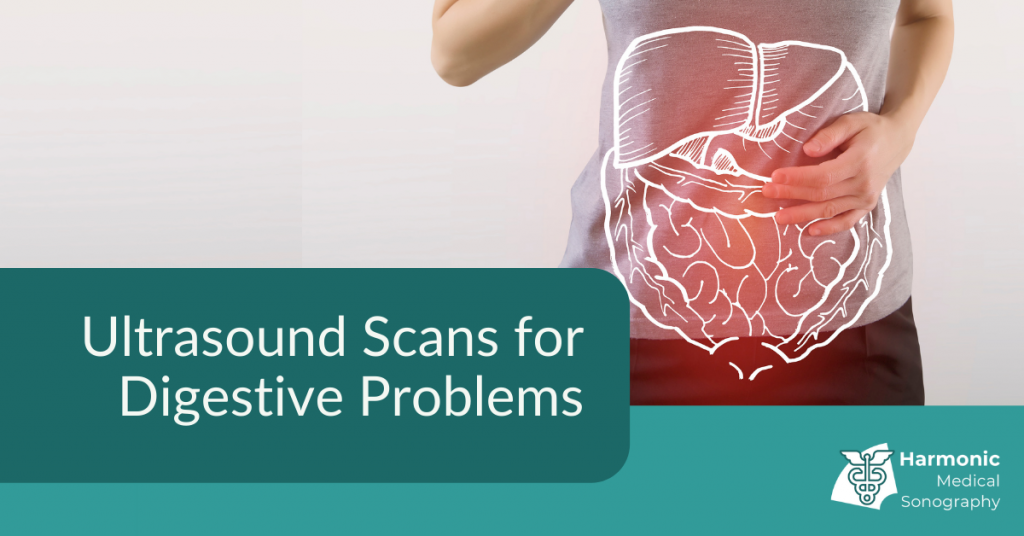Ultrasound testing helps in the diagnosis of a wide range of diseases and conditions, including stomach problems, gallbladder or pancreas problems, and abdominal pain. During an ultrasound test, high-frequency sound waves are transmitted through body tissues using an instrument called a transducer. The sound waves then echo back and create an image of your organs for our sonographers or your referring clinician to analyse.
At Harmonic Medical Sonography we frequently perform abdominal ultrasound scans to diagnose a variety of digestive issues. Our vital digestive organs make up a large percentage of our body and can often be complex to pinpoint the origin of many of abdominal symptoms. This is why ultrasound is important as a first line diagnosis to get a better picture of what is happening inside our body.
What Digestive Problems Can Ultrasound Diagnose?
- Cysts, tumours or abnormal growths in the liver, spleen, or pancreas
- Abnormal enlargement of the spleen
- Cancer of the liver or fatty liver
- Gallstones or kidney stones
- Kidney infections
- Ascites (fluid buildup between lining of abdomen and abdominal organs)
- Pancreatitis or appendicitis
What Happens During an Abdominal Ultrasound Test?
Before the Ultrasound
Depending on the type of test, you may need to drink fluid before the ultrasound or you may be asked to fast for 8 hours before the procedure. Our patient administrators will give you specific instructions on how to fast and what liquids you may have. If fasting is required, we endeavour to offer an early morning appointment so that you may have your first meal of the day after the scan.
During the Ultrasound
- You will lie on a padded examination table.
- A specially trained sonographer will perform the test.
- A small amount of water-soluble gel is applied to the skin over the area to be examined. The gel does not harm your skin and will be wiped off after the test.
- A device called a transducer is gently applied against the skin.
- You may be asked to hold your breath briefly several times.
- The ultrasound test takes several minutes to complete.
- Our clinicians will analyse the results and prepare a report that is either sent to you (private referrals) or forwarded to your GP.
Please contact us today should you wish to perform an abdominal ultrasound scan to identify digestive issues.


